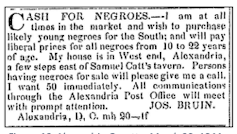Abstract
Text in Article III of the U.S. Constitution appears to give to Congress authority to make incursions into judicial supremacy, by restricting (or, less neutrally, “stripping”) the jurisdiction of federal courts. Article III gives Congress authority to make “exceptions” to the Supreme Court’s appellate jurisdiction. Article III also gives Congress discretion whether to “ordain and establish” lower federal courts. Congress’s power to create or abolish these courts would seem to include the power to create them but to limit their jurisdiction, and that has how the power has historically been understood.
Is Congress’s power to remove the jurisdiction of federal courts in effect a legislative power to choose the occasions on which federal courts may, and may not, have the final word on the meaning of the Constitution? That is a question on which Supreme Court has never spoken definitively.
In this Article, I argue that Congress’s Article III power can be understood as a means by which Congress may change the Constitution without amending it. I argue, further, that we should welcome it as such. Working through the ordinary legislative process, Congress may remove the jurisdiction of federal courts to hear cases involving most questions of federal law, including cases that raise questions under the federal Constitution. To be clear, I am not arguing that the Constitution unambiguously establishes this congressional power. As on so many important issues, the Constitution is indeterminate: Article III provides a textual foundation for the power, and neither history nor precedent rule it out. In this matter, however, what Congress does is more important than anything the Constitution says. The Constitution’s indeterminacy opens a space for Congress to reclaim authority, in particular cases, over constitutional interpretation. If a determined Congress acts to fill that space, courts will have little power to resist. Correction, if it comes at all, will come from voters.
Understood this way, the implications of Congress’s Article III power are potentially transformative. Congress may prescribe, by ordinary legislation, constitutional rules in areas where the meaning of the Constitution is unsettled. Or it may displace otherwise settled constitutional rules by ordinary legislation. In either case, Congress may remove the jurisdiction of federal courts to hear constitutional challenges to its interventions. And Congress may do the same with respect to state courts.
To be clear, Article III does not permit Congress to escape accountability. Rather, Article III gives to Congress the power to choose whether it must answer, in a particular instance, to judges or to voters. In the push-and-pull between judicially-enforced constitutional rules and the desires of current democratic majorities, the potential for Congress’s exercise of its Article III power helps legitimate both constitutionalism and judicial review.
Sprigman, Christopher Jon, Congress's Article III Power and the Process of Constitutional Change (August 8, 2020). New York University Law Review, Vol. 95, No. 6, 2020, Available at SSRN:
https://ssrn.com/abstract=3669954



